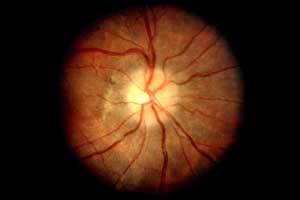- Home
- Editorial
- News
- Practice Guidelines
- Anesthesiology Guidelines
- Cancer Guidelines
- Cardiac Sciences Guidelines
- Critical Care Guidelines
- Dentistry Guidelines
- Dermatology Guidelines
- Diabetes and Endo Guidelines
- Diagnostics Guidelines
- ENT Guidelines
- Featured Practice Guidelines
- Gastroenterology Guidelines
- Geriatrics Guidelines
- Medicine Guidelines
- Nephrology Guidelines
- Neurosciences Guidelines
- Obs and Gynae Guidelines
- Ophthalmology Guidelines
- Orthopaedics Guidelines
- Paediatrics Guidelines
- Psychiatry Guidelines
- Pulmonology Guidelines
- Radiology Guidelines
- Surgery Guidelines
- Urology Guidelines
Topiramate more effective in lowering intracranial pressure than acetazolamide, finds study

UK: Idiopathic intracranial hypertension (IIH) -- characterized by increased intracranial pressure (ICP) -- can be effectively managed with topiramate compared to acetazolamide, according to a recent study.
The study, published in the journal Cephalalgia found that both subcutaneous and oral administration of topiramate significantly lowered intracranial pressure. Other tested drugs including the most commonly used drug in IIH i.e acetazolamide, did not significantly reduce intracranial pressure.
Idiopathic intracranial hypertension, characterized by increased ICP, typically affects obese women of childbearing age. It can lead to disabling headaches and papilloedema and has a potential for severe visual loss (permanent in up to 25%). Its treatment primarily focuses on the reduction of ICP to reduce headaches and preserve vision.
Acetazolamide is the most commonly used drug in IIH. Class 1 evidence has demonstrated modest improvement in visual field function in patients with IIH with mild visual loss. Other alternative drugs prescribed include topiramate, furosemide, amiloride and octreotide. However, there is sparse evidence to support the use of these commonly used drugs for IIH management.
William J Scotton, University of Birmingham, Edgbaston, Birmingham, UK, and colleagues evaluated the efficacy of these drugs at lowering ICP in healthy rats to provide pre-clinical evidence for its use in IIH.
For the purpose, the researchers subcutaneously administred acetazolamide, topiramate, furosemide, amiloride and octreotide at clinical doses (equivalent to a single human dose) and high doses (equivalent to a human daily dose) in female rats and measured ICP before and after the administration. In addition, intracranial pressure was also measured after oral administration of acetazolamide and topiramate.
Also Read: Ketamine safe for induction of GA with elevated intracranial pressure
Key findings of the study include:
- At clinical and high doses, subcutaneous administration of topiramate lowered intracranial pressure by 32% and 21% respectively.
- There was no significant reduction in intracranial pressure noted with acetazolamide, furosemide, amiloride or octreotide at any dose.
- Oral administration of topiramate significantly lowered intracranial pressure by 22%, compared to a 5% reduction with acetazolamide.
Also Read: Ocular Ultrasound an effective non-invasive estimator of intracranial pressure
"Future clinical trials evaluating the efficacy and side effects of topiramate in idiopathic intracranial hypertension patients would be of interest," concluded the authors.
To read the complete study follow the link: https://doi.org/10.1177/0333102418776455

Disclaimer: This site is primarily intended for healthcare professionals. Any content/information on this website does not replace the advice of medical and/or health professionals and should not be construed as medical/diagnostic advice/endorsement or prescription. Use of this site is subject to our terms of use, privacy policy, advertisement policy. © 2020 Minerva Medical Treatment Pvt Ltd